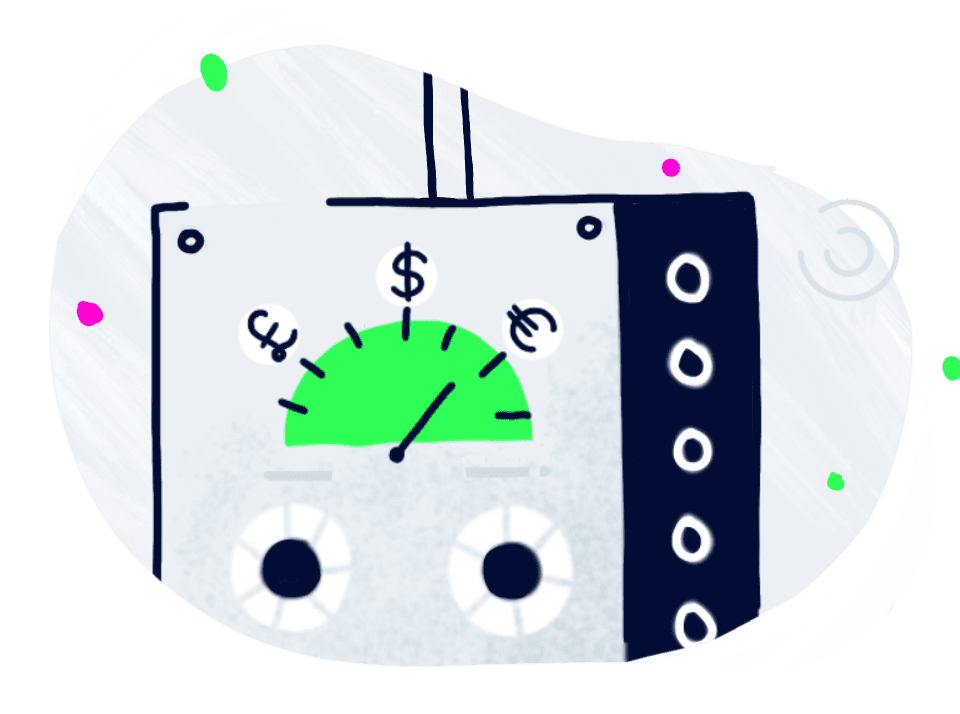Earlier this year we launched our Artist Survey. We wanted to get an idea of what life might be like for performers, organisers and creators after lockdown: what might change, what might stay the same, what they might need… and how we could help.
We’re now ready to share our findings. Before we do, though, we want to thank everyone who took the time to respond. By completing the survey, submitting your comments, and sharing your experiences you’ve helped create a dataset that’s illuminating, daunting, and ultimately heartening.
The arts industry is facing an unprecedented crisis. At a time like this it’s more important than ever to listen, share information, and work together to figure out the new normal. With that in mind, here’s what our survey told us.
What we found out
Artists have been amazingly quick to adapt
Creators have risen to the challenge posed by the pandemic in a range of ways. They’ve found new work, started adapting their practice for online audiences, and even begun experimenting with new genres and art forms.
38.1% of artists who responded had taken on extra non-performing work to help make ends meet during the crisis. Comments referenced everything from pizza delivery to forex trading – but by far the most common type of work described was online tutoring.
Many did note, however, that extra work simply wasn’t available to them, either because of the nature of their practise, or because they needed to shield or care for family members.
A great many artists adapted by taking their work online (55.6% had already done so, and 21.2% were considering it), with several approaches cropping up multiple times in the comments:
- Livestreamed performances
- Re-releasing old content online
- Running online workshops
Online festivals were reported to be a great help. 42.5% of respondents had participated or were scheduled to participate in one.
For the most part this was by invitation (52.2% of respondents got involved with an online festival this way), but of those who did get in touch with a festival, most were well-received. 17.9% said they approached a festival and were met with a great response, while only 3% said that the response they got was less than great.
Some changes might stick around for good…
There are some good things about so many acts being online. 70.1% of respondents said that they watched shows online in order to stay connected to the industry, with many comments noting that it was a great way to carry out research.
68.5% of people also watched shows because they wanted to support artists, and 57.5% tuned in to be entertained.
Interestingly, recorded performances were more popular than livestreamed ones, with 47.5% of people watching mostly recorded content, and only 22.5% watching mostly live streamed shows.
With regards to both streamed and recorded content, many comments also pointed to the increased accessibility of online shows for audiences – another reason, perhaps, why venues might wish to continue streaming performances even after lockdown restrictions are eased.
… and some changes might not
Three issues with online shows or workshops cropped up again and again.
Firstly, there were technological hurdles. 24.1% of artists said that they found it quite challenging, and 10.7% very challenging to get their work online. From the comments we can see that the two biggest problems were:
- Recording equipment or internet connections not being up to scratch
- Difficulty working out how to actually reach people online
Secondly, there was the issue of money. Many artists noted that an online show was good promotion (76% of respondents said so), but that translating that into actual income wasn’t easy:
- 4% said putting work online hadn’t made a meaningful impact to their bottom line
- Only 1.9% said they were able to successfully sell tickets and generate donations
Thirdly and finally, many artists noted that in-person interaction was what made their act work. Converting to online performances, unfortunately, isn’t always a viable option.
Cancelling an event isn’t easy, but communication helps
As lockdown began, almost all events were forced to change their plans. These postponements and cancellations affected an overwhelming 88.1% of respondents.
How did most venues handle this? 37.4% of organisers offered to refund registration fees straight away, while 22.3% either offered no refund, or asked participants to roll forward their involvement to next year.
Not all participants who were asked to roll forward their involvement could do so, which left some out of pocket. The general consensus: the best way to handle it was to give artists a choice.
Whatever approach a festival took to fees, there was one thing that really made a difference to the way artists felt. In all cases they were disappointed to lose a valuable performance slot, but communication from organisers could really soften that blow.
Again and again respondents sang the praises of festivals and organisers who had stayed in touch and kept them posted… even when things were completely unknown. Frequent, honest communication gave them confidence and helped them plan ahead.
On the subject of communication, we also asked how artists are staying on top of news and opportunities during the outbreak. Here’s what we found:
- 70% find opportunities through social media
- 6% look to email lists and newsletters
- 4% discover opportunities through their personal networks
- Only 43.8% are checking websites
The sector is determined to survive
It’s fair to say that nobody knows when things might return to normal – or what normal will look like when they do. Understandably, many respondents expressed doubts about going back to shows, with 30% thinking it wouldn’t be safe to do so this year.
20% said that they would go as soon as it was possible, as long as venues instituted reasonable social distancing measures. 25% said they couldn’t wait to go back, and 21.9% very honestly said that they simply didn’t know.
Some ideas about what the industry might look like when things do resume arose. Artists (63.6% of them) noted that more local performance opportunities were something that they would appreciate.
Many comments suggested outdoor performances, or the reopening of theatres with social distancing measures and improved cleaning regimes.
The most frequent sentiment, though, was that clear guidance on the safe management of performance spaces was what would make the biggest difference. There was a great deal of determination to return to work… but a recognition that this could only happen once the government and public health officials agreed on a safe way to do so.
What creators need now
We asked respondents what would help them get back on their feet in the wake of the crisis, and a few clear themes emerged.
Funding and opportunities
63.6% of respondents said that more opportunities would help them recover, and 58.6% said that more grants, bursaries, or commissions would be helpful. For organisations looking to help reinvigorate the arts industry: artists are crying out for financial help and paid opportunities.
There are dozens of ways to create new opportunities, or extend existing ones. At Eventotron, for example, we’ve adapted our bursary scheme to take account of postponements, and also commissioned a series of pieces for our blog.
Information and promotion
Many respondents also noted that support didn’t have to be monetary. Here are some other ideas about what might be useful that cropped up in the comments again and again:
- Information about how to move performances online
- Marketing support and promotion
- Clear guidance on how to perform safely
A better government response
The vast majority of respondents weren’t happy (53.8%), or were only somewhat happy (25%), with the government response to the crisis.
Respondents from some countries noted that their government had done well despite an incredibly difficult situation. Within the UK (where the majority of our respondents were based), however, there was an overwhelming sense that more clarity was needed.
While it’s impossible to say if that clarity is on the horizon, the recent rescue package for the arts should give some hope to artists living and working in the UK.
Systemic support
Many artists also noted that a year without in-person festivals might be the perfect time to rethink, rework, and make festivals more accessible. How? Here are some ideas that popped up in multiple comments:
- Lower registration fees
- Help with accommodation and travel
- More help with marketing and promotion
The consensus in the comments was clear; while 2020 might be a bad year for in-person festivals, there’s an opportunity here to make things better for 2021.
Final thoughts
There’s one thing that came through overwhelmingly in the comments of almost every question. What artists, creators, and event organisers want most of all is this: for everyone to be safe.
Yes, there was a desire to return to normal. There were pleas for courage and leadership and forward thinking. But, almost universally, respondents noted that they wanted the way forward to be found carefully, safely, and with the welfare of everyone – artists, performers, audience members and organisers – centre stage.





